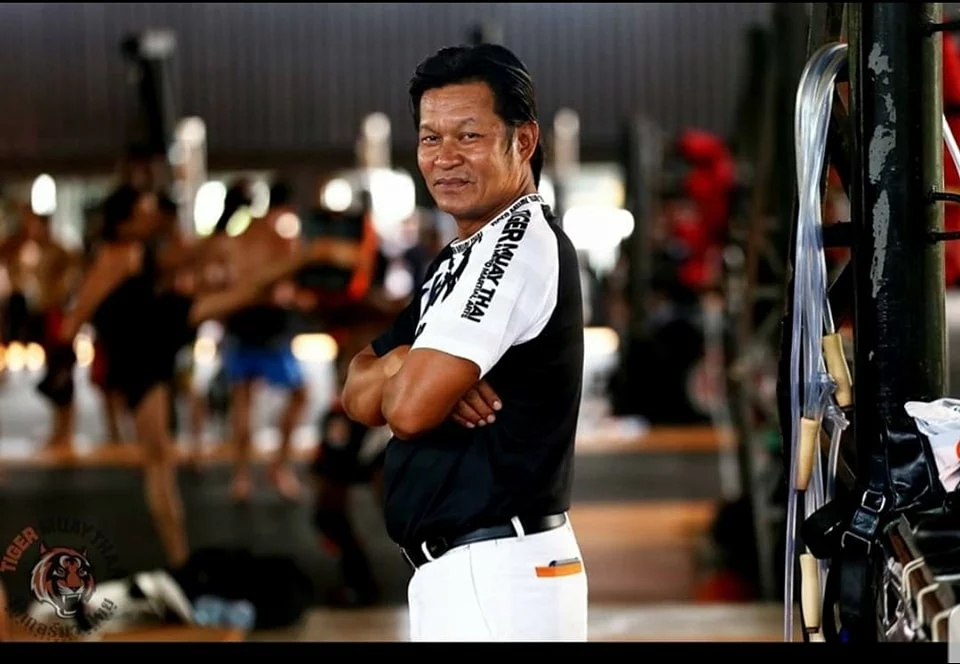This is the fourth in a series of interviews with the major players of the fight scene on the island of Phuket, Thailand. These are the stories of survival during the Covid pandemic and its rippling effects.
As Covid-19 restrictions finally begin to ease in Thailand, Viwat Sakulrat looks forward to seeing his once-bustling gym come to life again.
The team behind Tiger Muay Thai was riding an all-time high coming out of 2019 with two UFC championship belts (via Alexander Volkanovski and Valentina Shevchenko), and a third (Petr Yan) just a fight away from being crowned. In early 2020 however, all proceedings at the mega-gym came to a screeching halt as the Thai government began to enforce strict travel and public health measures in order to combat the global pandemic.
Sakulrat, the co-owner and managing director of Tiger, recalls the island paradise of Phuket turning into a ghost town in the months following. With an estimated 95% of the island’s income linked to tourism, it’s clear why so many other gyms in the area have been forced to close their doors for good.

“I didn’t think it was going to affect us,” Sakulrat told The AllStar. “But it did.”
What follows is an account of how Sakulrat and his partners did to keep their gym afloat, and in the process, help protect the livelihoods of nearly 200 staff members from the impact of the devastating pandemic.
Paradise lost
Sakulrat cheered when Tiger Muay Thai reopened its doors on December 1. It greeted the new year with a vastly expanded class schedule, as the world-class training facility moved to make up for lost time.



As managing director of the company, Sakulrat admits that it’s been a difficult time for himself. He had seen his gym decline from a bustling hub for up to 700 customers at a time to the quiet pitter-patter of the rotating roster of skeleton staff left to maintain the complex.
“I walk out, I feel like shit,” he lamented. “It used to be noise everywhere…on the mat was 70 to 80 people at the same time.”
During the restrictions, the gym was “like a ghost town.”
With no classes to be taught or students to cater to, the livelihoods of the gym’s staff members were under threat. Most of them relied solely on their income from the gym to survive.
“The government asked us to close the company,” Sakulrat said. “That’s when I decided to talk to my partners: ‘You know what, we can’t let them go – we have to do whatever it takes to make them survive.’”
“We paid their salaries from day one until now.”
Sakulrat estimates the company spent north of 100 million baht (roughly US$3 million) on salaries and other various outgoings throughout the pandemic – but knows he made the right choice in supporting his staff.
He had a moral obligation: “They have kids, they have a wife,” he said.
What lies ahead
Two years on from the initial wave of travel restrictions, the world is slowly re-opening its borders. Sakulrat believes the onus now is on the Thai government to reinvigorate the country’s once-raging tourism industry.
“The rules and regulations that don’t make sense, take them out,” he said.
“If the government does a good job on this part, people are waiting – they will come.”
Turning his sights toward the future for Tiger Muay Thai, Sakulrat is focusing his attention on the short-term goal of simply getting more students back on the mats.
In true Thai fashion, Sakulrat is optimistic about what challenges lie ahead as he steers the company back towards some semblance of normalcy.
“I’m not worried,” he declared “I believe [the athletes] will come in sooner or later.”
“If I can deal with the past 50 years of my lifetime, I think the future is nothing.”
